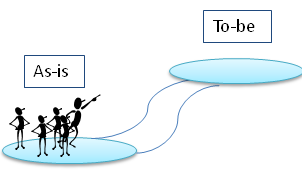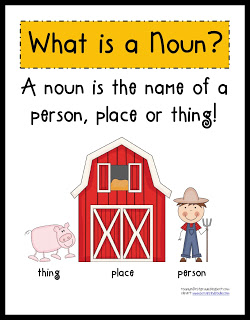-er And -IR Verbs (Regular)
(320).webp)
This quiz covers -ER and -IR verbs in the present tense. When you are done take a screenshot and post your certificate. There will be work in classroom for your academic enjoyment.
- 1.
Beatriz __________________ muchas verduras y frutas. (comer)
Explanation
The subject pronoun is "ella" meaning "she". Therefore, the correct conjugation is "come" (3rd person singular).Rate this question:
- 2.
Tú _________________ leche orgánica con dos huevos. (beber)
Explanation
2nd person singular is the vowel plus an "s".Rate this question:
- 3.
Carmen y yo somos amigos y ________________ en la misma colonia. (vivir)
Explanation
The verb ends in "ir"; therefore, the corresponding "imos" ending to match the subject.Rate this question:
- 4.
Usted ______________ muy bien. Quiero escribir como tú. (escribir)
Explanation
Third person singular. "Usted" is you formal (it fall under 3rd person singular).Rate this question:
- 5.
El artista ___________________ pintar la pared en la tarde. (prometer)
Explanation
"He" is third person singular subject pronoun that can replace "the artist".Rate this question:
- 6.
A part of speech indicating action.
- A.
Verbo
- B.
Pronombre
- C.
Adjetivo
- D.
Gerund
Correct Answer
A. VerboExplanation
The correct answer is "verbo" because it is the part of speech that indicates action. A verb is a word that expresses an action, occurrence, or state of being. It is the main element of a sentence and is essential for conveying meaning and expressing actions. Verbs can be used in different tenses and forms to indicate various actions or states.Rate this question:
-
- 7.
An unchanged verb. In English it usually includes the word “to” – to be, to swim, to eat, to live, etc. In Spanish all infinitives end in either -ar, -er-, ir.
- A.
Predicate
- B.
Root
- C.
Stem
- D.
Infinitive
Correct Answer
D. InfinitiveExplanation
The correct answer is "infinitive." An infinitive is an unchanged verb that usually includes the word "to" in English, such as "to be," "to swim," "to eat," "to live," etc. In Spanish, all infinitives end in either -ar, -er, or -ir.Rate this question:
-
- 8.
To change the verb from the infinitive to a form that matches the subject.
- A.
Congregate
- B.
Conjugate
- C.
Concentrate
- D.
Communicate
Correct Answer
B. ConjugateExplanation
The correct answer is "conjugate." To conjugate a verb means to change its form to match the subject. This is necessary in order to correctly express tense, person, and number in a sentence. The other options, "congregate," "concentrate," and "communicate," do not involve changing the form of a verb to match the subject.Rate this question:
-
- 9.
The person or thing doing the action.
- A.
Verb
- B.
Subject
- C.
Preposition
- D.
Direct object
Correct Answer
B. SubjectExplanation
The correct answer is "subject." In a sentence, the subject is the person or thing that is performing the action. It is the main focus of the sentence and usually comes before the verb. The subject is essential for understanding who or what is doing the action in a sentence.Rate this question:
-
- 10.
A word that replaces the proper names of nouns.
- A.
School pronouncements
- B.
Subject pronouns
- C.
Subject - verb agreement
- D.
Silent promises
Correct Answer
B. Subject pronounsExplanation
Subject pronouns are a type of pronoun that replace the proper names of nouns when they are used as the subject of a sentence. In this case, "subject pronouns" is the correct answer because they are the words that replace the proper names of nouns in the given examples.Rate this question:
-
- 11.
To conjugate a verb in Spanish you take off the ending, -ar, -er, -ir and you are left with the "thorn" of the verb.
- A.
True
- B.
False
Correct Answer
B. FalseExplanation
The statement in the question is incorrect. To conjugate a verb in Spanish, you take off the ending (-ar, -er, -ir) and add the appropriate ending based on the subject pronoun. The "thorn" of the verb is not mentioned or relevant in Spanish conjugation.Rate this question:
-
- 12.
When you are left with the stem of the verb, for example, recibir– ir = recib (the stem) and then you add on the appropriate ending to match the subject.
- A.
True
- B.
False
Correct Answer
A. TrueExplanation
The given answer is true because when conjugating verbs in Spanish, you typically remove the ending of the verb to get the stem, and then add on the appropriate ending to match the subject. In this case, the example provided shows the verb "recibir" and its stem "recib" before adding the appropriate ending. This is a common practice in Spanish verb conjugation.Rate this question:
-
- 13.
Paco _________________ muy rápido. (correr)
- A.
Cerramos
- B.
Corremos
- C.
Corren
- D.
Corre
Correct Answer
D. CorreExplanation
The correct answer is "corre" because the verb "correr" is conjugated in the third person singular form to match the subject "Paco".Rate this question:
-
- 14.
Los cristianos _______________ en Cristo. (creer)
- A.
Creemos
- B.
Creen
- C.
Crees
- D.
Cree
Correct Answer
B. CreenExplanation
The correct answer is "creen". In Spanish, the verb "creer" means "to believe". The subject "los cristianos" is plural, so the correct conjugation of the verb in the present tense is "creen". This form matches with the subject and agrees in number.Rate this question:
-
- 15.
Mis hermanas y yo ______________ aceites esenciales. (vender)
- A.
Vendemos
- B.
Vendimos
- C.
Vendremos
- D.
Vende
Correct Answer
A. VendemosExplanation
The correct answer is "vendemos" because the verb "vender" is conjugated in the present tense for the subject "mis hermanas y yo". "Vendemos" means "we sell" in English, which agrees with the subject "my sisters and I" in the sentence.Rate this question:
-
- 16.
Tú eres mi mejor amigo. ___________________ mis cartas que te envio. (recibir)
- A.
Recibimos
- B.
Recide
- C.
Reciben
- D.
Recibes
Correct Answer
D. RecibesExplanation
The correct answer is "recibes" because it agrees with the subject "tú" (you) and the verb "recibir" (to receive) in the present tense. In Spanish, the verb endings change depending on the subject, and "recibes" is the correct form for the subject "tú".Rate this question:
-
- 17.
Usted _______________ la puerta. (abrir)
- A.
Abren
- B.
Abrimos
- C.
Abre
- D.
Abres
Correct Answer
C. AbreExplanation
The correct answer is "abre". In Spanish, the verb "abrir" means "to open". The subject "usted" is the formal singular form of "you". When conjugating the verb for this subject, we use the third person singular form, which is "abre". Therefore, "abre" is the correct conjugation of "abrir" for the subject "usted" in this sentence.Rate this question:
-
- 18.
Yo __________ mucho porque mi familia es muy distante. (sufrir)
Correct Answer
sufroExplanation
First person singular. Drop the -ir ending and add an -o.Rate this question:
- 19.
Alexis y yo (correr) en el gimnasio.
- A.
Corremos
- B.
Corre
- C.
Corres
- D.
Corre
Correct Answer
A. CorremosExplanation
The correct answer is "corremos" because the subject of the sentence is "Alexis y yo," which is a first-person plural pronoun. In Spanish, when the subject is "we," the verb conjugation is in the first-person plural form. Therefore, the correct form of the verb "correr" (to run) to match the subject is "corremos."Rate this question:
-
- 20.
Jessica y Abel aprenden otra lengua.
- A.
Jessica and Abel teach another language.
- B.
Jessica and Abel learn many languages.
- C.
Jessica and Abel study another language.
- D.
Jessica and Abel learn another language.
Correct Answer
D. Jessica and Abel learn another language.Explanation
The correct answer is "Jessica and Abel learn another language." This answer accurately reflects the information given in the statement. It states that Jessica and Abel are learning a different language, which aligns with the phrase "aprenden otra lengua" in the original statement.Rate this question:
-
- 21.
Ella aprende el español.
- A.
She learns Spanish.
- B.
She likes Spanish.
- C.
He learns Spanish.
- D.
They study Spanish.
Correct Answer
A. She learns Spanish.Explanation
Ella is the subject pronoun for "she" in English.Rate this question:
-
- 22.
I attend the party.
- A.
No asisto a la fiesta.
- B.
Yo asisto a la fiesta.
- C.
Voy a la fiesta.
- D.
Corro a la fiesta.
Correct Answer
B. Yo asisto a la fiesta.Explanation
The correct answer is "Yo asisto a la fiesta." This is the correct translation of the given sentence "I attend the party" in Spanish. The word "yo" means "I" and "asisto" means "attend" in Spanish. The phrase "a la fiesta" means "to the party." Therefore, the correct translation is "Yo asisto a la fiesta."Rate this question:
-
- 23.
We climb.
- A.
Suben.
- B.
Subemos.
- C.
Subimos.
- D.
Subes
Correct Answer
C. Subimos.Explanation
The correct answer is "Subimos." This is the correct conjugation of the verb "subir" in the first person plural form in Spanish. It means "we climb" in English.Rate this question:
-
- 24.
La familia abre la puerta café.
- A.
The family opens the brown door.
- B.
The family closes the coffee door.
- C.
The family does not have a cafe door.
- D.
There isn't a brown door.
Correct Answer
A. The family opens the brown door.Explanation
The correct answer is "The family opens the brown door." This is because the sentence "La familia abre la puerta café" translates to "The family opens the brown door." The word "café" means "brown" in this context, not "coffee" as in the other options.Rate this question:
-
- 25.
Notice that most of the present tense endings for -er and -ir verbs are the same. Only the nosotros and vosotros endings are different.
- A.
True
- B.
False
Correct Answer
A. TrueExplanation
The statement is true because most of the present tense endings for -er and -ir verbs are indeed the same. The only exceptions are the nosotros and vosotros endings, which are different.Rate this question:
-
Quiz Review Timeline +
Our quizzes are rigorously reviewed, monitored and continuously updated by our expert board to maintain accuracy, relevance, and timeliness.
-
Current Version
-
Mar 13, 2025Quiz Edited by
ProProfs Editorial Team -
Mar 09, 2017Quiz Created by
Soyazteca



























